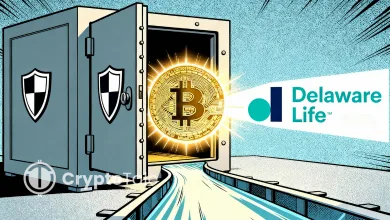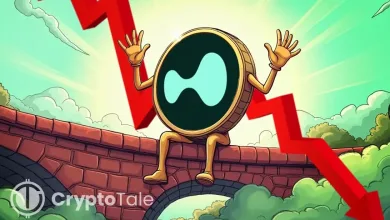Kraken CEO Fights Bank Lobby Regarding Stablecoin Yields

- Ripley challenges banks to control and calls for freedom in digital asset earnings.
- The Genius Act redefines stablecoin yield rules for growing cryptocurrency regulation.
- Banks and cryptocurrency firms intensify rivalry over control of digital finance.
Kraken CEO Dave Ripley has challenged the American Bankers Association (ABA) after its senior executive labeled stablecoin yields a “detriment” to banks’ community support role. The confrontation underscores growing friction between crypto exchanges and traditional banks over the future of financial yields.
Brooke Ybarra, the ABA’s Senior Vice President for Innovation and Strategy, said that if crypto exchanges like Kraken or Coinbase offered interest on payment stablecoins, it would “fly in the face” of their intended use as payment tools, not as stores of value. Her remarks reignited debate about the boundaries between traditional banking and digital asset markets.
Freedom of Choice or Threat to Stability?
Responding directly, Ripley asked, “A detriment to whom?” He said consumers should have the right to choose where they hold and transfer value. Ripley added that banks have profited from customers’ deposits while offering “minimal returns,” contrasting that with crypto’s pursuit of a more open financial system.
Ybarra warned that stablecoin yields—some reaching 5%—could divert vast sums from traditional savings accounts. She cited data showing the U.S. national savings rate at only 0.6%, while high-yield accounts average around 4%. According to the Treasury Borrowing Advisory Committee, as much as $6.6 trillion could shift from bank deposits to stablecoins if such products gain approval.
She said interest-bearing stablecoins could weaken banks’ ability to fund local lending and community programs. Ybarra argued that this shift may challenge financial stability if deposit volumes erode too quickly. Her remarks reflected concerns that widespread migration to crypto yield products could disrupt conventional credit creation.
Industry Pushback Against Traditional Banking
Ripley’s rebuttal gained support across the digital asset sector. Dan Spuller, Head of Industry Affairs at the Blockchain Association, accused banks of “protecting their turf.” He said, “Big Banks are ruthlessly targeting our friends at @Coinbase and @KrakenFX to protect their turf. Translation: Competition’s winning.”
Developers also weighed in. Solana contributor Voss remarked, “Bring on the competition; it’s a capitalist world anyway.” Many crypto advocates argue that stablecoin yields reflect fairer market dynamics than legacy deposit structures. According to data from Bankrate, yields on some crypto platforms still exceed the best available bank rates, underscoring their growing appeal to consumers.
The debate arrives shortly after U.S. President Donald Trump signed the GENIUS Act, establishing a clear legal framework for stablecoins. The new law prohibits direct interest payments but allows “rewards” for token holders. Analysts see the framework as pivotal in accelerating stablecoin adoption while defining how platforms can offer compliant yield programs.
Related: Kraken Expands in U.S. Market With CFTC Venue Acquisition
A Global Shift in the Stablecoin Conversation
Beyond the United States, tensions between crypto firms and traditional financial institutions continue to rise. Kraken UK Managing Director Bivu Das urged British regulators to accelerate clarity on tokenized assets and stablecoins. Speaking at the Zebu Live conference in London, he said the U.K. risks losing ground to other financial hubs unless it acts quickly.
Das described the U.K.’s measured approach as “the right one” but stressed that regulators should let firms test tokenized securities faster. “We need to be brave on the things that we know will make a difference,” he said, calling for urgency in fostering innovation.
Elsewhere, Australia faces its own friction between banks and crypto exchanges. Binance Australia General Manager Matt Poblocki said that banking restrictions still block users from seamless crypto transactions. He said such barriers limit participation, confidence, and trust in digital markets, slowing broader adoption.Diogo Monica, a general partner at Haun Ventures, expressed his view that the risk of some stablecoins might even be comparably lower than that of traditional deposits. According to him, the reserves that support stablecoins are mostly U.S. Treasury bills with a short maturity and bank deposits in global mega-banks that have similar or even better security measures.




